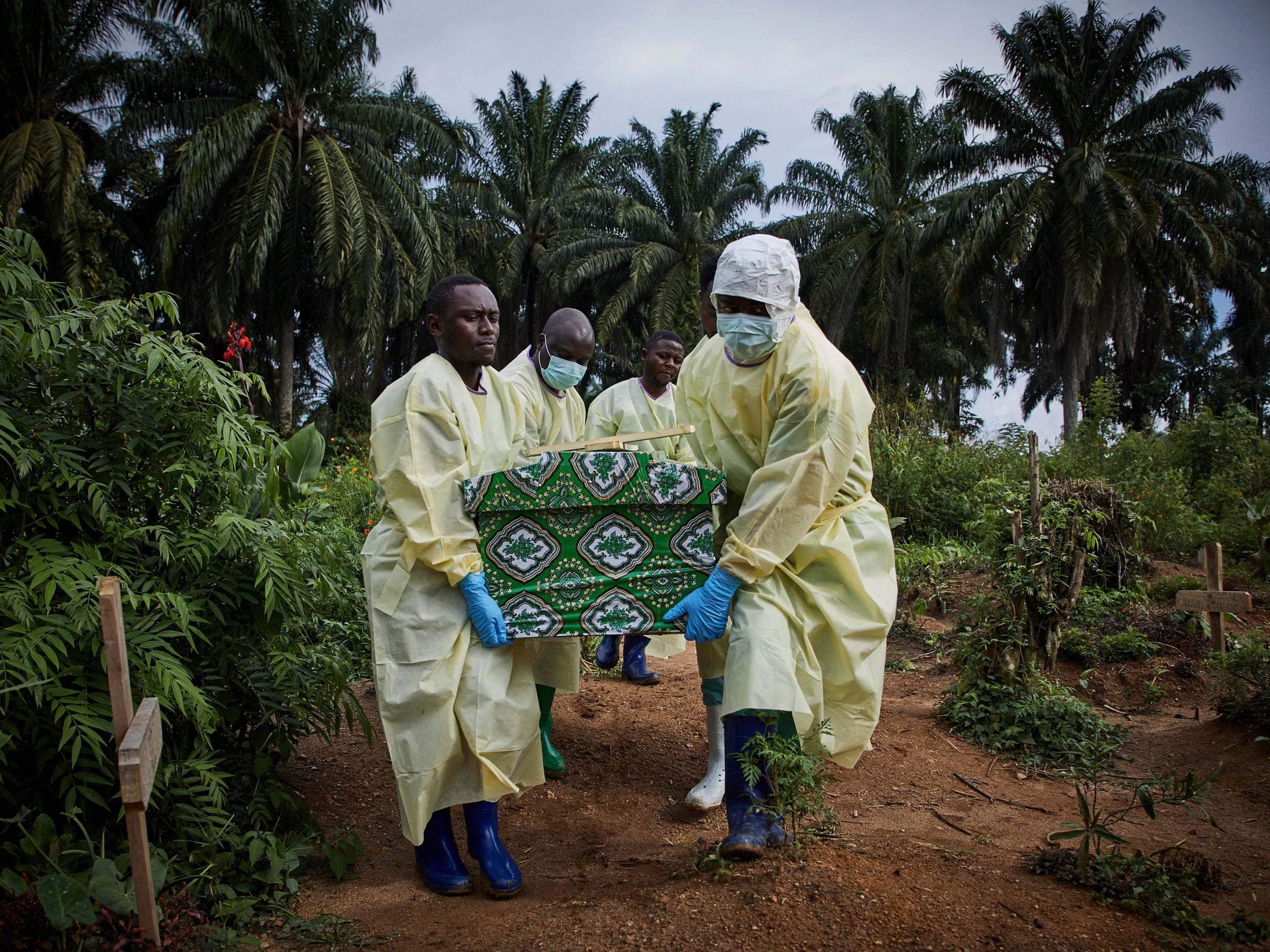Ebola death toll in Congo now over 2,000
Health workers struggle to control spread of disease in remote and conflict-hit areas

Your support helps us to tell the story
From reproductive rights to climate change to Big Tech, The Independent is on the ground when the story is developing. Whether it's investigating the financials of Elon Musk's pro-Trump PAC or producing our latest documentary, 'The A Word', which shines a light on the American women fighting for reproductive rights, we know how important it is to parse out the facts from the messaging.
At such a critical moment in US history, we need reporters on the ground. Your donation allows us to keep sending journalists to speak to both sides of the story.
The Independent is trusted by Americans across the entire political spectrum. And unlike many other quality news outlets, we choose not to lock Americans out of our reporting and analysis with paywalls. We believe quality journalism should be available to everyone, paid for by those who can afford it.
Your support makes all the difference.The death toll from the Congo’s year-long Ebola outbreak has now climbed above 2,000.
Government data released on Friday showed the number of deaths had reached 2,006, while confirmed and probable cases of the virus had surpassed 3,000.
The death of a nine-year-old girl in neighbouring Uganda, who tested positive for the virus after entering the country from the Congo, underlined the challenge medical teams are facing in containing the disease within the border.
Despite the development of an effective vaccine and treatments, health workers have also struggled to control the spread of the disease in remote and conflict-hit areas of eastern Congo, where many people are wary of the response effort.
The International Federation of the Red Cross said in a statement: “For the treatments to work, people need to trust them and the medical staff who administer them.
“This will take time, resources and a lot of hard work.”
The World Health Organisation (WHO), however, said the latest Uganda case highlighted the border authorities’ skill at detecting and isolating potential sources of transmission.
Last week the WHO voiced concern about the widening geographic reach of the disease, but confirmed the virus had not gained a foothold in the major city of Goma, even after four cases were recorded there in July and early August.
Goma, a lakeside city of almost two million people on the Rwandan border, had been on high alert for weeks after a gold miner with a large family infected several people with Ebola before dying himself.
The outbreak in the Congo, which was officially declared in August 2018, is the second deadliest on record after the 2013-16 epidemic in West Africa that killed more than 11,300 people.
The WHO announced the epidemic was an international health emergency in July – only the fifth outbreak to warrant this status since the system began in 2005.
This is the Congo’s tenth Ebola outbreak, but it is the first in the densely forested hillside provinces of North Kivu and Ituri.
Despite the virus spreading to new areas, the past week’s transmission rate was little changed from that of the past month and a half, which has seen an average of 77 new cases per week, according to the WHO.
Join our commenting forum
Join thought-provoking conversations, follow other Independent readers and see their replies
Comments